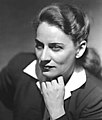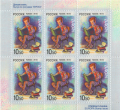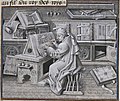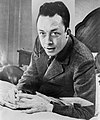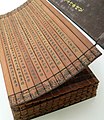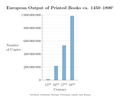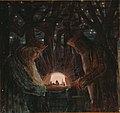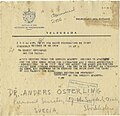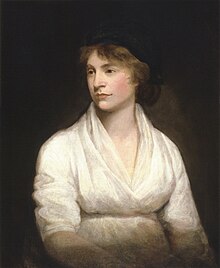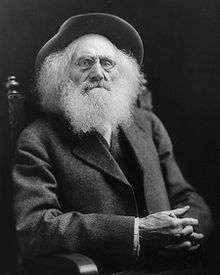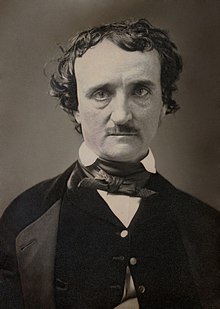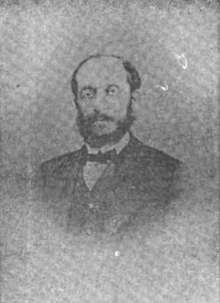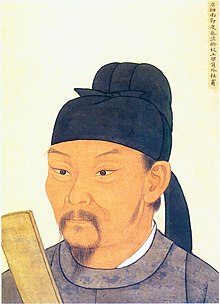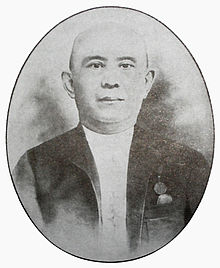Portal:Literature
Introduction

Literature is any collection of written work, but it is also used more narrowly for writings specifically considered to be an art form, especially novels, plays, and poems. It includes both print and digital writing. In recent centuries, the definition has expanded to include oral literature, much of which has been transcribed. Literature is a method of recording, preserving, and transmitting knowledge and entertainment. It can also have a social, psychological, spiritual, or political role.
Literary criticism is one of the oldest academic disciplines, and is concerned with the literary merit or intellectual significance of specific texts. The study of books and other texts as artifacts or traditions is instead encompassed by textual criticism or the history of the book. "Literature", as an art form, is sometimes used synonymously with literary fiction, fiction written with the goal of artistic merit, but can also include works in various non-fiction genres, such as biography, diaries, memoirs, letters, and essays. Within this broader definition, literature includes non-fictional books, articles, or other written information on a particular subject. (Full article...)
General images -
Pattern Recognition is a novel by science fiction writer William Gibson published in 2003. Set in August and September 2002, the story follows Cayce Pollard, a 32-year-old marketing consultant who has a psychological sensitivity to corporate symbols. The action takes place in London, Tokyo, and Moscow as Cayce judges the effectiveness of a proposed corporate symbol and is hired to seek the creators of film clips anonymously posted to the internet.
The novel's central theme involves the examination of the human desire to detect patterns or meaning and the risks of finding patterns in meaningless data. Other themes include methods of interpretation of history, cultural familiarity with brand names, and tensions between art and commercialization.
Pattern Recognition is Gibson's eighth novel and his first one to be set in the contemporary world. Like his previous work, it has been classified as a science fiction and postmodern novel, with the action unfolding along a thriller plot line. Critics approved of the writing but found the plot unoriginal and some of the language distracting. The book peaked at number four on the New York Times Best Seller list, was nominated for the 2003 British Science Fiction Association Award, and was shortlisted for the 2004 Arthur C. Clarke Award and Locus Awards.
Selected excerpt
| “ | It is impossible to say how first the idea entered my brain, but, once conceived, it haunted me day and night. Object there was none. Passion there was none. I loved the old man. He had never wronged me. He had never given me insult. For his gold I had no desire. I think it was his eye! Yes, it was this! One of his eyes resembled that of a vulture—a pale blue eye with a film over it. Whenever it fell upon me my blood ran cold, and so by degrees, very gradually, I made up my mind to take the life of the old man, and thus rid myself of the eye forever. | ” |
| — Edgar Allan Poe, "The Tell-Tale Heart" | ||
More Did you know
- ... that Samuel Minturn Peck was the first Poet Laureate of Alabama, a title created for him, from 1930 until his death in 1938?
- ... that James McBride was described as "clearly stunned" when his novel The Good Lord Bird won the National Book Award for Fiction?
- ... that Arishima Ikuma, Japanese novelist, published his new-style poems and short stories as a vehicle to introduce the works of the French impressionist painter Paul Cézanne to the Japanese public?
- ... that German-born Jewish Egyptologist Käte Bosse-Griffiths published a novel in the Welsh language?
- ... that John Fowles' postmodern novel The French Lieutenant's Woman both emulated and parodied popular Victorian novels, like those of Charles Dickens and Thomas Hardy?
Selected illustration
Did you know (auto-generated) -

- ... that medieval literature scholar Theodore Silverstein's unit in World War II took over the Eiffel Tower to intercept communications of German aircraft?
- ... that The Inland Whale, by Theodora Kroeber, sought to demonstrate the literary merit of Indigenous American oral traditions?
- ... that Robert Aiello's first novel was published after literary agents turned it down roughly 60 times?
- ... that the lands of the Shirvanshah served as the focal point for Persian literature during the 12th century?
- ... that literary agent Jacques Chambrun sold unauthorized, scandalous excerpts of a Marilyn Monroe memoir to a British tabloid?
- ... that John Seigenthaler hosted a literary interview program which ran for 42 years on Nashville Public Television?
Today in literature
- 1568 – Honoré d'Urfé, French writer born
- 1763 – William Shenstone, English poet died
- 1764 – Marie-Joseph de Chenier, French poet born
- 1860 – Rachilde, French author born
- 1869 – Else Lasker-Schüler, German writer born
- 1874 – Elsa Beskow, Swedish author born
- 1887 – John van Melle, South African writer born
- 1917 – Sidney Sheldon, American author born
- 1939 – Jane Yolen, American author born
- 1978 – Harry Martinson, Swedish writer died
- 1986 – Frank Herbert, American author died
- 1996 – Amelia Rosselli, Italian poet died
Topics
| Literature: | History of literature · History of the book · Literary criticism · Literary theory · Publishing |
| By genre: | Biography · Comedy · Drama · Epic · Erotic · Fable · Fantasy · Historical fiction · Horror · Mystery · Narrative nonfiction · Nonsense · Lyric · Mythopoeia · Poetry · Romance · Satire · Science fiction · Tragedy · Tragicomedy · more... |
| By region: | African literature · Asian · European · Latin American · North American · Oceanic |
| By era: | Ancient literature · Early medieval · Medieval · Renaissance · Early Modern · Modern |
| By century: | 10th century in literature · 11th · 12th · 13th · 14th · 15th · 16th · 17th · 18th · 19th · 20th · 21st |
| Recent: | 2018 in literature· 2017 · 2016 · 2015 · 2014 · 2013 · 2012 · 2011 · 2010 · 2009 · 2008 · 2007 · more... |
Categories
Related portals
| Concepts: | |
| Genres: | |
| Religions: |
Things you can do
Related WikiProjects
WikiProjects related to literature:
| Concepts: | Biographies · Books · Comics · Magazines · Manga · Novels · Poetry · Short stories · Translation studies |
| Genres: | Alternate history · Children's literature · Crime · Fantasy · Horror · Mythology · Romance · Science fiction |
| Authors: | Honoré de Balzac · Roald Dahl · William Shakespeare |
| Series: | Artemis Fowl · Chronicles of Narnia · Discworld · Harry Potter · His Dark Materials · Hitchhiker's Guide to the Galaxy · Inheritance Cycle · James Bond · King Arthur · Middle-earth · Percy Jackson · Redwall · A Series of Unfortunate Events · Shannara · Sherlock Holmes · A Song of Ice and Fire · Star Wars · Sword of Truth · Twilight · Warriors · Water Margin · Wizard of Oz |
| Regions: | Australian literature · Indian literature · Persian literature |
Associated Wikimedia
The following Wikimedia Foundation sister projects provide more on this subject:
-
Commons
Free media repository -
Wikibooks
Free textbooks and manuals -
Wikidata
Free knowledge base -
Wikinews
Free-content news -
Wikiquote
Collection of quotations -
Wikisource
Free-content library -
Wikiversity
Free learning tools -
Wiktionary
Dictionary and thesaurus










